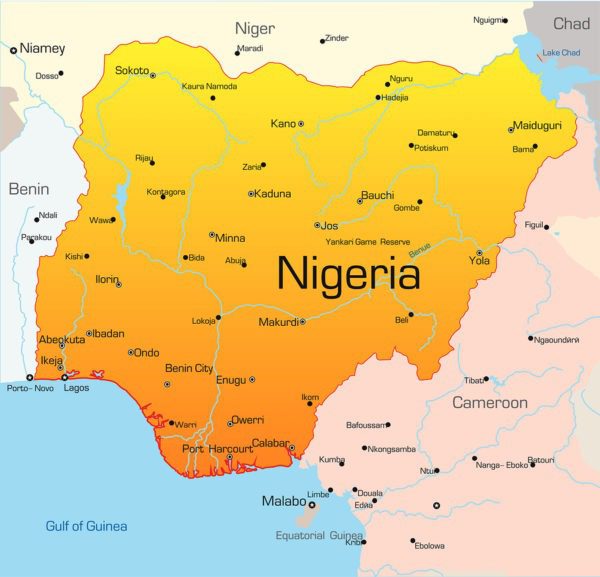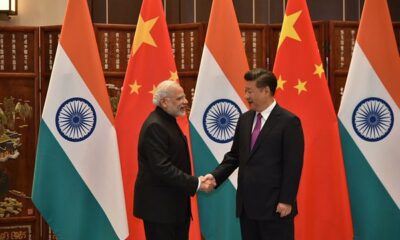National Issues
Are we tearing ourselves apart for wrong reasons? -By Samuel Akinyele Caulcrick


As the call for secession or restructuring, depending on which side of the divide, continues unabated, the underlining cause for agitation is, as usual, glossed over. It is the economy – Stupid! Most people pivot their comments on ethnicity and religion. However, contrary to the general positions, this writer does not believe it is all about the exclusion of one’s tribe or religion, but the exclusion of one’s social class that has always bedevilled our space. It is about the marginalisation of most people’s station in life within the community that cuts across all the religions and all the tribes in Nigeria.
This writer also has a firm belief that Nigeria’s problem is wrongly diagnosed. Roughly 600 positions are up for the presidential appointment in a given dispensation. These presidential appointments have never benefited other individuals, not even remotely, apart from the friends, family, and friends of friends of the President. Nigerians have always carried daggers ready to stab one another if the appointments do not have their religious, or ethnic or regional association. Millions of Nigerians that do not have access to the necessary needs to survive also belong to various tribes, religion, and regions. Why is that not dividing us? Nigerian elites are not bothered by the exclusion of the majority of the people in Nigeria from Nigeria’s petrol-economy.
- A drive from any rich area through the general areas to most airports in each state within the federation of Nigeria tells a lot about the real ailment in Nigeria. The sullen faces one sees depict that there is marginalisation alright; it is that of the station of the majority in life, and not their region or their religion. There is no argument going on whether the economy is working well for the generality of Nigerians. For so long, Nigeria has focused on the macroeconomics and microeconomics and has ignored welfare economics. Welfare economics is the branch of economics that deals with normative issues. Its purpose, unlike the others, is not to explain how the economy works, but to assess how well it works. Nigeria needs to revisit welfare economics to review and update our economic directions. Our renowned economists had, for reasons best known to them, ignored welfare economics that some highlighted during the debate that ushered the Structural Adjustment Programme in 1986. It is the reason why we have not realised that whatever we have had not worked well for most Nigerians. Consequently, the majority of the people, living in Nigeria, have found themselves, due to no fault of theirs, outside of the Nigerian economy, or at best on the periphery.
- Nigeria has veered off the course charted by the country’s founding fathers. It was exhilarating to listen to arguments those days by the likes of Sam Aluko on the economy. Years had gone by when bold economists were never afraid to come out of the cupboard and challenge populist economic theories. The government’s action of relieving the likes of Ibrahim Ayagi of Continental Merchant Bank, and Oladele Olashore of First Bank, from their posts immediately after the SAP debate, because they opposed, at that time, the IMF’s neoliberal economics must have sent a negative signal to other economists. Today, economists have littered Nigeria’s landscape, but these are “Twinkle, twinkle little superstars” – graduates of faculties of social sciences of Ivy-League colleges. And, you wonder all these qualifications for what? It is time the country jettisoned the classroom stuff and reasoned out of the box. Why would those who should talk, hide in the closet? Where also are Nigeria’s graduates of the best world’s faculties of engineering? The Nigerian socio-economic woes are becoming insurmountable, and their solutions have graduated beyond the classroom environment. Our professors have mortgaged their souls for porridge.
- To come out of this economic quagmire, Nigeria needs these so-called experts to commence debates on how to get the country out. COREN, for instance, needs to get out of their shells and, at least, come up with gadgets that will ease the way the lowly among us do menial tasks. For crying out loud, most of these fellows graduated with flying colours – at least on paper. The engineers do not need power, either electrical or political, to devise or design better ways of doing things better. In other countries, economists and engineers, in their separate fields and sometimes together, argue from both sides of schools of thought to forge a way forward. In Nigeria, all the so-called professionals and professors echo the same things and no innovative away of improving our lifestyle. Everybody waits for the government that is largely populated by the flotsam and the jetsam of our society; devoid of developmental arguments. Everyone considers it wise to conform to a familiar theme; afraid to differ. Nigeria’s economic growth, without delusions, is glossy painted and that is why it has not translated into jobs or joy. The country’s earnings are majorly from oil receipts (about 96 per cent) by foreign companies that operate 90 per cent on the other side of the Nigerian economy. Since the 70s, the Nigerian economy has been running on rents like the legendary “omo oni ile,” somewhat without real productivity. It is the reason many public holidays outside of oil production have not affected the economy.
- That Nigeria needs to diversify its economy, sounds like a broken record, as if individual businesses are not diversified enough. We are bamboozled every day with economic and technical jargons that have not improved the living standards of Nigerians – both wealthy and poor. It is not that the rich live a real life, they are only able to afford what ordinary people in some countries have taken for granted; ours is an alternate lifestyle to the good life. The Nigerian economy has faltered long enough; electricity that the rest of humanity has taken for granted has become a puzzle and unattractive to investors. Every Nigerian knows how to produce electricity with over 60 million owning their generators; it is the production of electricity of better economies of scale (the commercial power) that has eluded us. To say there is nothing wrong with us in this country is to put it mildly. The madness is such that even the privileged amongst us still live below par when compared with the living standards of the less privileged in some sister countries – where you turn on any switch, there is always electricity; you open any tap, potable water runs always.
- We are so busy trying to survive individually, and recently trying to tear the country apart, with little or no capacity left to nation-building. Those in positions of trust and responsibility often lace their decisions with personal interest. So, for many years in the country, we gleefully continue to panel-beat unworkable systems; mostly, only beneficial to a few individuals as against the majority. Marginalisation of the majority of us, irrespective of tribe or religion, has taken a backstage, while the elites want us to believe that it is the exclusion of our tribe that should take the centre stage.
- Nigeria embraced the neoliberal economics, through the implementation of SAP, in June 1986, and consequently, that policy’s tripartite conditions of deregulation, privatisation and fiscal austerity were institutionalised. Contrary to expected results, the policy only attracted investors in the mercantile sector of the economy (stock trading, banking and general buying and selling), and before long everything consumed in the country has to be imported, including food. Meanwhile, longtime investors in the factory floor sector of the economy disinvested, or at best moved their production plants to storage and joined the bandwagon of importation of finished goods, including what they were set up to produce in Nigeria. The results are not farfetched, such as the decline in the aggregate requirements for power energy to manufacture finished goods, hence the unattractiveness of the power sector to potential investors. Another is the creation of national wealth; while the mercantile sector of the economy generates an enormous commission, there is little-added value to the wealth of Nigeria since most of the trading is local. There is also the issue of job creation for Nigeria’s teeming youths; the factory floor option (agriculture, manufacturing, education, and mining) creates more jobs than the mercantile sector. The agriculture and manufacturing sectors have faltered harshly as they struggle to have access to foreign exchange that is needed for raw materials, mechanised plants, and spares. The present initiative of encouraging farmers back to the farms therefore is a step in the right direction.
Capt. Caulcrick sent in this piece from Lagos



















